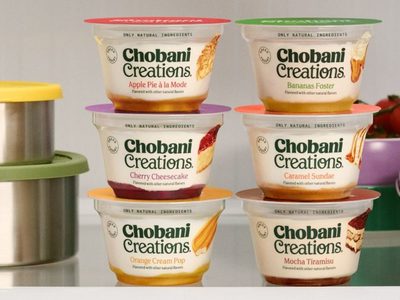An amendment to the Senate’s food safety bill, the Food Safety Modernization Act, S. 510, threatened to diminish what has been broad industry support for legislation strengthening the Food and Drug Administration and enhancing the nation’s food safety system.
The amendment offered by Senator Dianne Feinstein of California would ban the use of bisphenol A (B.P.A.) in food and beverage containers and in reusable beverage containers. Industry groups cried foul pointing out the F.D.A. and the National Institutes for Health were studying whether B.P.A. constituted a threat to health and that the amendment would short-circuit that process.
The Senate version of the food safety enhancement legislation was expected to be brought before the whole Senate in the next few weeks. The House of Representatives passed its food safety bill last year. The bills, crafted in response to a spate of outbreaks of foodborne illness and mounting concerns over the safety of both domestically produced and imported foods, attracted bipartisan support in both houses of Congress.
B.P.A. is a chemical used to make hard clear plastic used in many consumer products, including baby bottles and sipping cups. It also is used as an ingredient in epoxy resins used to provide a protective lining on the inside of metal-based food and beverage cans.
The F.D.A. in an assessment issued earlier this year said it had “some concern” in the wake of studies pointing to potential adverse effects of B.P.A. on the brains, behavior and prostate glands of fetuses, infants and young children. The agency said it would partner with the National Toxicology Program at the N.I.H. to conduct several studies on the safety of B.P.A. during the next several months.
The agency said in the interim it would support industry action to stop producing B.P.A.-containing baby bottles and infant feeding cups, facilitate development of alternatives to B.P.A. for linings of liquid infant formula cans and support efforts to replace B.P.A. or minimize B.P.A. levels in other food can linings.
Ms. Feinstein’s amendment is based on a bill she introduced last year, the Ban Poisonous Additives Act of 2009, S. 593. The bill was co-sponsored by Senators Barbara Boxer of California, Tim Johnson of South Dakota, Robert Menendez of New Jersey, Jeanne Shaheen of New Hampshire, Kirsten Gillibrand of New York, John Kerry of Massachusetts and Charles Schumer of New York. The bill aimed to ban the use of B.P.A. in food and beverage containers and reusable food containers. Waivers from the ban would be available to manufacturers of certain types of food who demonstrate it is not immediately technologically feasible to replace B.P.A. in the food’s container. The waivers would be for one year, and the company would have to submit a plan and a timeline for removing B.P.A. from such containers. The waivers may be extended if necessary but only for one additional year, and those manufacturers securing waivers “shall display a prominent warning on the label that the container contains B.P.A. in a manner that the secretary shall require, which manner shall ensure adequate public awareness of potential health effects associated with B.P.A.”
Fifty-four food industry organizations and chambers of commerce jointly wrote letters to Senator Tom Harkin, chairman of the Senate Committee on Health, Education, Labor and Pensions, and Senator Michael Enzi of Wyoming, the ranking minority member of the committee, voicing their strong opposition to the amendment, “To be clear, we are prepared to support S. 510, the Food Safety Modernization Act, in its current form. At the same time, we are concerned that amendments to ban B.P.A. would undermine the goals of food safety legislation and delay final passage.”
The associations said B.P.A. has been used for more than 30 years to improve the safety and quality of food and beverages, including by providing protective coatings for cans and the metal closures for glass jars.
“Because adequate alternatives are not currently available, bills such as S. 593 would adversely impact an exceptionally wide range of canned and other packaged food, from fruits and vegetables to soft drinks and beer,” the associations noted.
The associations said the F.D.A. is reviewing B.P.A. and is expected to complete a safety assessment within the next 18 to 24 months. In addition, the N.I.H. has devoted $30 million to study the safety of B.P.A.
“Our industries welcome F.D.A. and N.I.H. review of B.P.A.,” the associations asserted. “If the F.D.A. or other competent regulatory authorities conclude that B.P.A. poses a risk to our consumers, our industries will move quickly to address these risks. Safety is the top priority of our industries.”



